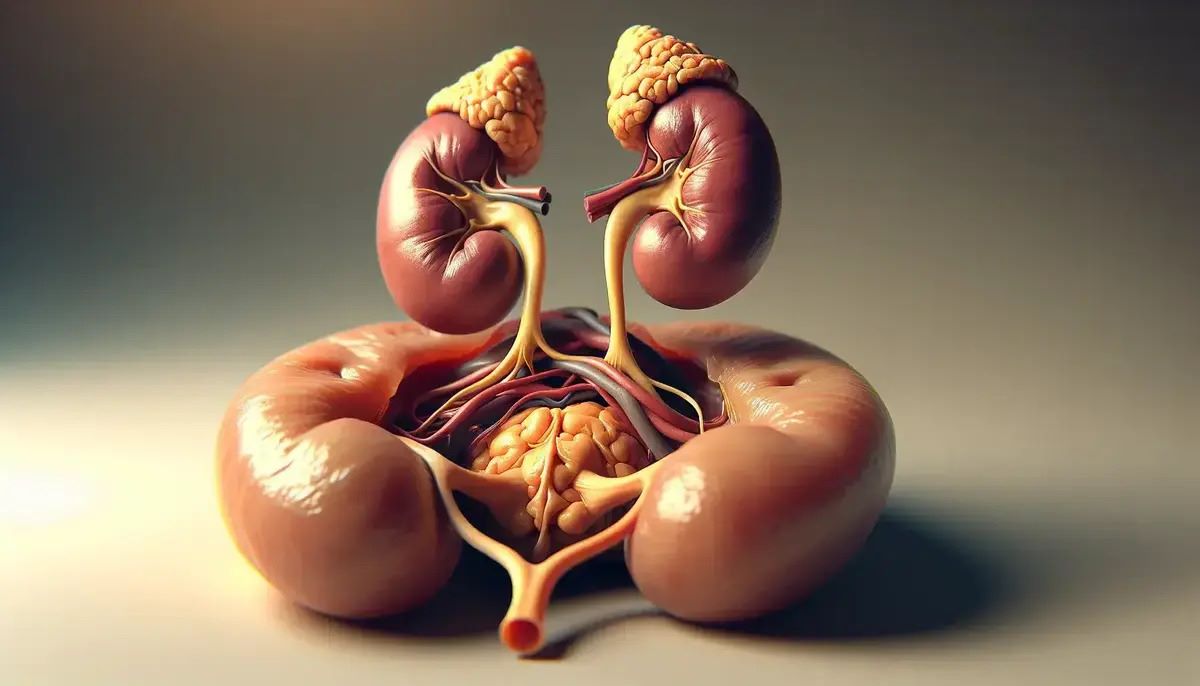
Adrenocorticotropic hormone (ACTH) plays a crucial role in our body's stress response. Produced by the pituitary gland, this hormone stimulates the adrenal glands to release cortisol, a key stress hormone. ACTH helps regulate blood pressure, immune response, and metabolism. Without it, our bodies would struggle to handle stress effectively. Curious about how this tiny hormone impacts your daily life? From its role in the "fight or flight" response to its influence on energy levels, ACTH is a powerhouse in maintaining balance. Ready to learn more? Let's dive into 20 fascinating facts about ACTH and its vital functions.
What is Adrenocorticotropic Hormone (ACTH)?
Adrenocorticotropic hormone, often abbreviated as ACTH, plays a crucial role in our body's response to stress. Produced by the pituitary gland, it stimulates the adrenal glands to release cortisol. Let's dive into some fascinating facts about this hormone.
-
ACTH is produced in the anterior pituitary gland. This pea-sized gland located at the base of the brain is responsible for releasing several hormones, including ACTH.
-
ACTH stimulates the adrenal cortex. The adrenal cortex, part of the adrenal glands located on top of the kidneys, releases cortisol when stimulated by ACTH.
-
Cortisol helps manage stress. Often called the "stress hormone," cortisol helps the body respond to stress by increasing blood sugar, enhancing brain function, and reducing inflammation.
The Role of ACTH in the Body
Understanding the role of ACTH can help us appreciate its importance in maintaining our health. Here are some key points about its functions.
-
ACTH regulates metabolism. By stimulating cortisol production, ACTH helps regulate how the body uses carbohydrates, fats, and proteins.
-
It affects the immune system. Cortisol, released in response to ACTH, can suppress the immune system, reducing inflammation and the risk of autoimmune diseases.
-
ACTH influences blood pressure. Cortisol helps maintain blood pressure by regulating the balance of salt and water in the body.
How ACTH Levels are Controlled
The body has a sophisticated system to regulate hormone levels, ensuring they stay within a healthy range. Let's explore how ACTH levels are controlled.
-
The hypothalamus releases CRH. Corticotropin-releasing hormone (CRH) from the hypothalamus signals the pituitary gland to release ACTH.
-
Negative feedback loop. High levels of cortisol signal the hypothalamus and pituitary gland to reduce CRH and ACTH production, maintaining balance.
-
Circadian rhythm affects ACTH levels. ACTH levels peak in the early morning and decline throughout the day, following the body's natural sleep-wake cycle.
Disorders Related to ACTH
Imbalances in ACTH levels can lead to various health issues. Here are some disorders associated with abnormal ACTH levels.
-
Cushing's disease. This condition occurs when the pituitary gland produces too much ACTH, leading to excessive cortisol production and symptoms like weight gain, high blood pressure, and diabetes.
-
Addison's disease. In this disorder, the adrenal glands don't produce enough cortisol, often due to insufficient ACTH. Symptoms include fatigue, weight loss, and low blood pressure.
-
Congenital adrenal hyperplasia. A genetic disorder affecting cortisol production, leading to increased ACTH levels as the body tries to compensate.
Diagnostic Tests for ACTH Levels
Doctors use various tests to diagnose and monitor conditions related to ACTH. Here are some common diagnostic methods.
-
Blood tests. Measuring ACTH levels in the blood can help diagnose disorders like Cushing's disease and Addison's disease.
-
ACTH stimulation test. This test measures how well the adrenal glands respond to an injection of synthetic ACTH, helping diagnose adrenal insufficiency.
-
Dexamethasone suppression test. This test evaluates how cortisol levels change in response to dexamethasone, a synthetic steroid, helping diagnose Cushing's syndrome.
Treatment Options for ACTH-Related Disorders
Treating disorders related to ACTH often involves addressing the underlying cause and managing symptoms. Here are some common treatment approaches.
-
Medications. Drugs like corticosteroids can replace deficient cortisol in Addison's disease, while medications like ketoconazole can reduce cortisol production in Cushing's disease.
-
Surgery. Removing a tumor from the pituitary or adrenal glands can help normalize ACTH and cortisol levels in conditions like Cushing's disease.
-
Radiation therapy. This treatment may be used to shrink a pituitary tumor producing excess ACTH.
Interesting Facts about ACTH
Here are some additional intriguing facts about ACTH that highlight its complexity and importance.
-
ACTH is a peptide hormone. Composed of 39 amino acids, ACTH is a relatively small protein.
-
It was discovered in the 1930s. Researchers identified ACTH while studying the pituitary gland's role in adrenal function, leading to a better understanding of hormone regulation.
Final Thoughts on ACTH
ACTH, or adrenocorticotropic hormone, plays a crucial role in regulating our body's stress response and maintaining homeostasis. Produced by the pituitary gland, it stimulates the adrenal glands to release cortisol, a hormone essential for managing stress, metabolism, and immune response. Understanding ACTH's function helps in diagnosing and treating disorders like Cushing's disease and Addison's disease.
Research continues to uncover more about this hormone's impact on our health. Staying informed about ACTH can empower you to make better health decisions and recognize symptoms of hormonal imbalances early.
Remember, hormones like ACTH are vital for our well-being. Keeping an eye on your health and consulting healthcare professionals when needed ensures your body's systems function smoothly. Stay curious and proactive about your health!
Was this page helpful?
Our commitment to delivering trustworthy and engaging content is at the heart of what we do. Each fact on our site is contributed by real users like you, bringing a wealth of diverse insights and information. To ensure the highest standards of accuracy and reliability, our dedicated editors meticulously review each submission. This process guarantees that the facts we share are not only fascinating but also credible. Trust in our commitment to quality and authenticity as you explore and learn with us.


